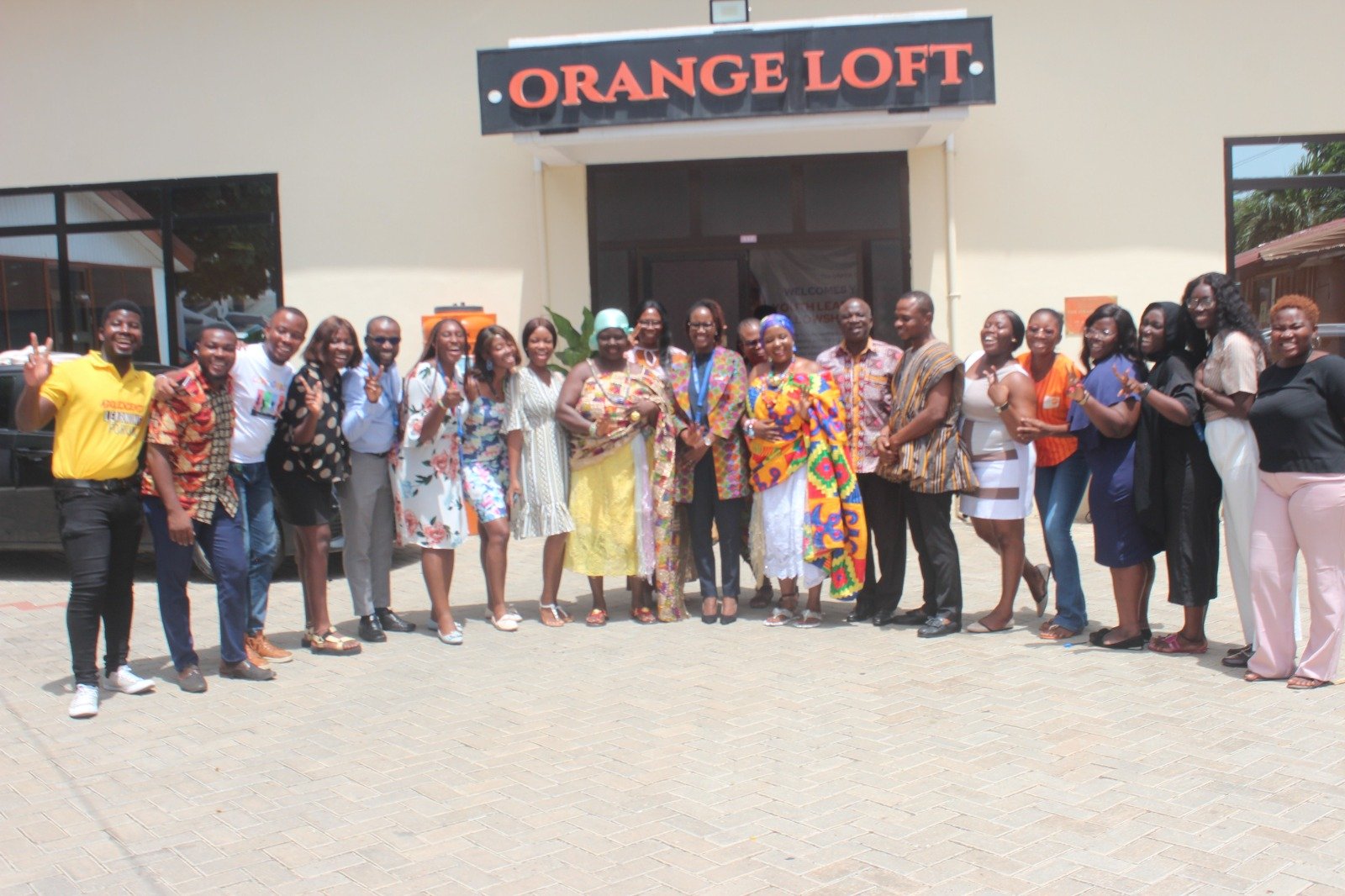
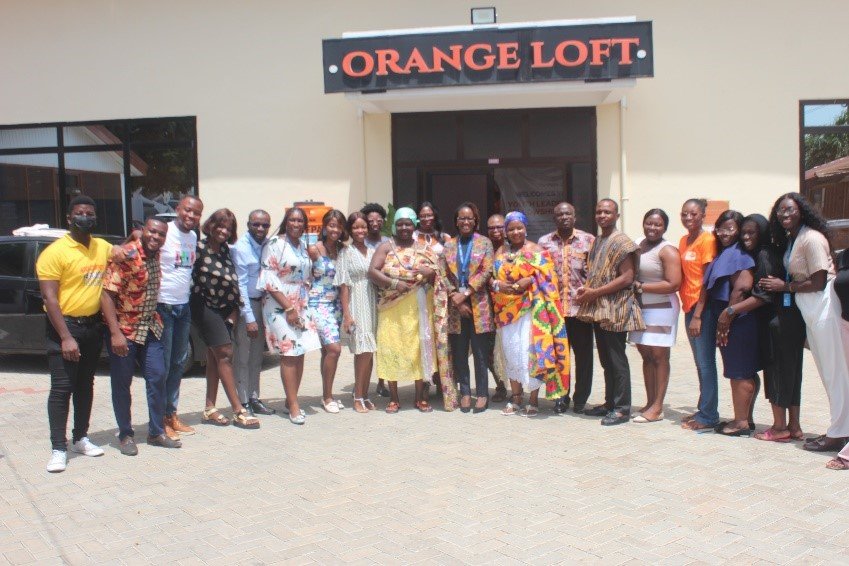
The United Nations Population Fund (UNFPA) says it is inspiring that Ghana’s rapid adoption of digital technologies to tackle development needs has enabled women to access platforms and information otherwise unavailable.
Such vision, it stressed, is helping to erode digital gaps to enhance better life opportunities for them, as part of the holistic agenda of achieving a gender-equal world.
The UNFPA Deputy Country Representative, Dr. Emmily Naphambo, and Head of Gender Unit, Dr. Doris Mawuse Aglobitse, shared this during a mentorship session for girls, dubbed “SHECAN”, at the UNFPA Ghana Orange Loft in Accra yesterday.
In attendance were a Representative from UNWOMEN, the Swiss Ambassador and Mamaga Akua Sabea Nyabor VII, paramount Queenmother of the Akrofu Traditional area.
For Dr. Doris Aglobitse, during the COVID-19 pandemic, e-commerce – the buying and selling of goods electronically online – became increasingly popular, and its growth has not been stunted in a post-COVID environment.
She referred to UNDP’s COVID-19 Business Tracker report which indicated that the use of digital technology (mobile money and internet) among businesses, following the pandemic has increased and risen even further among women.
According to her, women who are largely in the informal sector and engaged in the buying and selling of goods were greatly affected.
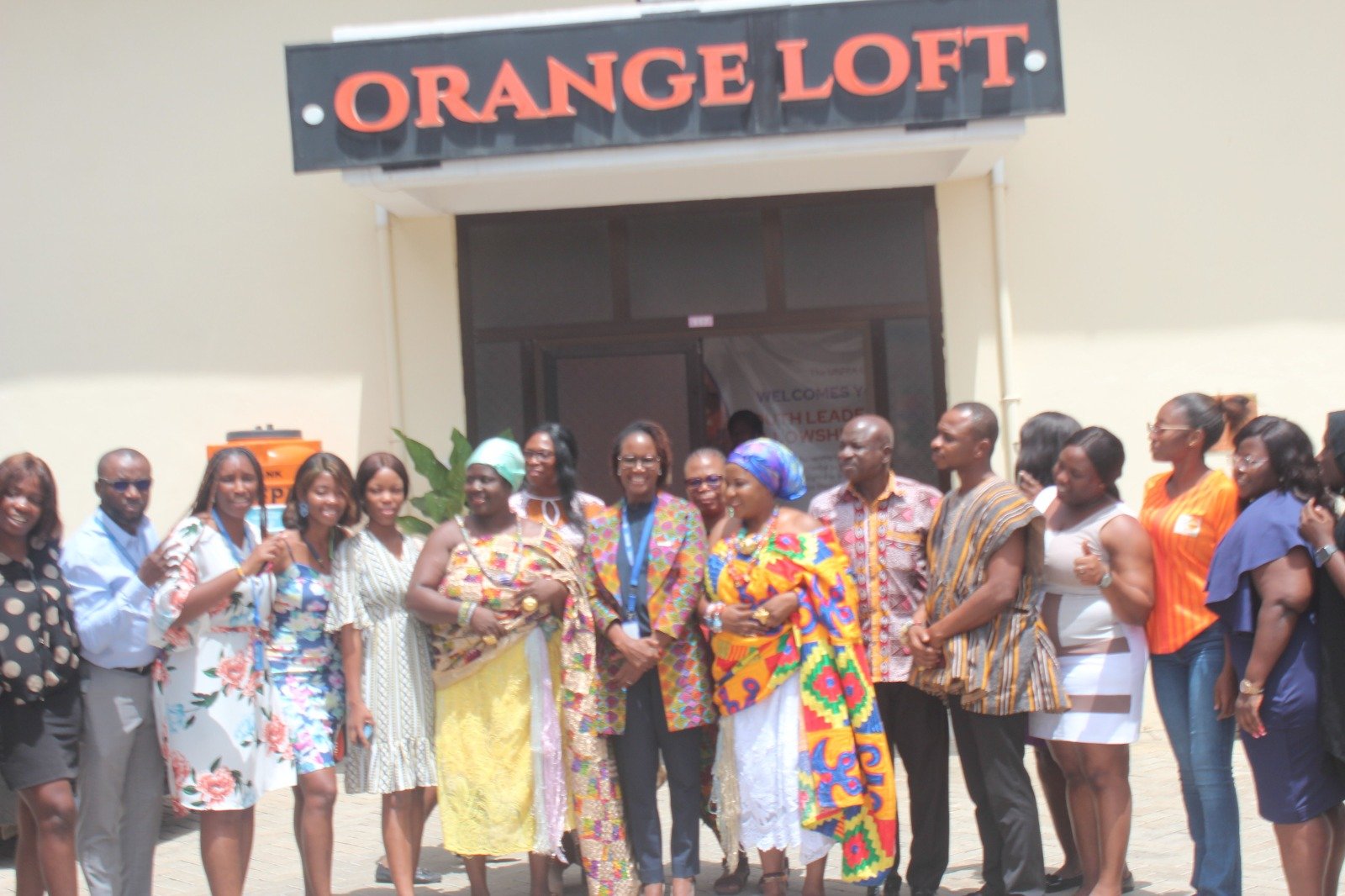 Bridging digital gap
Bridging digital gap
Dr. Doris Aglobitse noted that this could be exponential for Ghana, particularly with a large population of youth that need employment. She said figures also show that women are at high risk to be left behind without the proper support and training.
To this end, she explained that the UN has been working to address the economic performance of MSMEs in the country. In the area of Agribusiness, she indicated that the UN had launched the “Expanding the Kaizen initiative by enhancing sustainable agribusiness” project.
This is aimed at providing avenues for businesses to use UNIDO’s digital dashboard system to enhance resource efficiency, the environmental sustainability, and the social welfare of MSMEs.
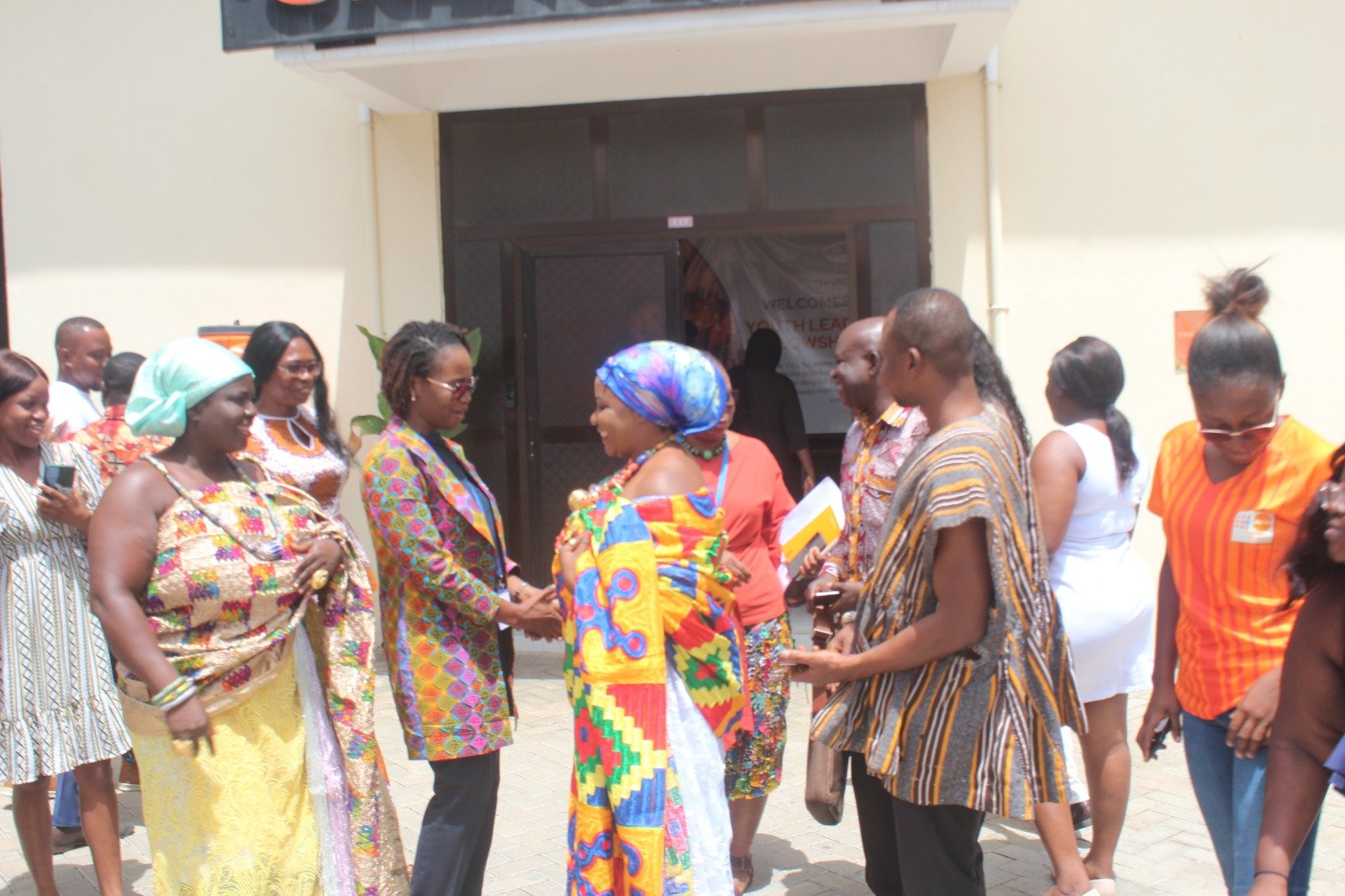 “It looks to further enhance the competitiveness of MSMEs in the country. And UNCTAD’s work with the Ministry of Trade and Industry on e-commerce readiness is a critical piece in accelerating digital trade, especially for women,” she stressed.
“It looks to further enhance the competitiveness of MSMEs in the country. And UNCTAD’s work with the Ministry of Trade and Industry on e-commerce readiness is a critical piece in accelerating digital trade, especially for women,” she stressed.
She also revealed that in partnership with the IamtheCODE Foundation, the UN-Habitat and UNHCR in Ghana have launched the “Digital and Reproductive Health Learning for Girls and Boys in Informal Settlements” programme.
This, she noted, is aimed at improving digital and reproductive health education in selected slums and informal settlements in Ghana.
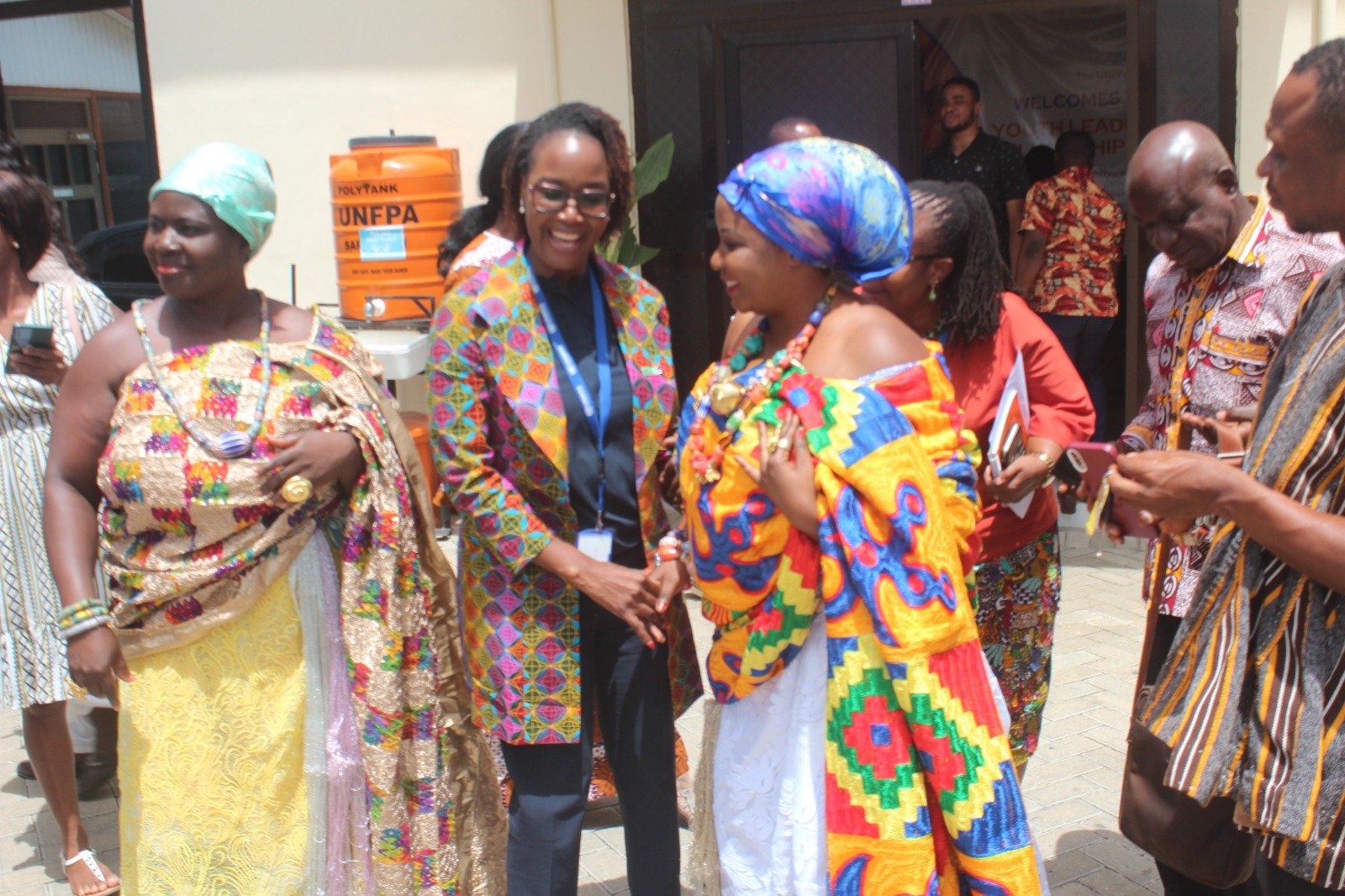 Additionally, she said through UNFPA, the Ghana Health Service (GHS) and other partners have developed the WAWABA SRH, a user-centered web-based SRH platform that directs users to nearest locations to access friendly SRH services.
Additionally, she said through UNFPA, the Ghana Health Service (GHS) and other partners have developed the WAWABA SRH, a user-centered web-based SRH platform that directs users to nearest locations to access friendly SRH services.
“And is an integral part of the You-Must-Know (YMK) App of the GHS. Today, WAWABA/YMK has been accessed by over 50,000 adolescents,” she added.
Innovation
The paramount Queenmother of the Akrofu Traditional area, Mamaga Akua Sabea Nyabor VII, said currently she electronically generates income for many vulnerable women she deals with through the “Asigame” online marketplace, she has developed.
She stressed that e-commerce “is popular because of the many benefits”.
“I have closed down my physical space shop which, of course, was taking a lot of money as rent and now operate my e-business -internet marketing. I take my payment through electronic funds transfer; mobile money and it makes life much easier and comfortable for me,” she told the audience.
 According to her, the outlined number of female-initiated/female-owned technology-based innovations indicate that women are churning out usable and inclusive digital tools
According to her, the outlined number of female-initiated/female-owned technology-based innovations indicate that women are churning out usable and inclusive digital tools
With Africa’s Internet economy estimated to reach $180 billion by 2025, according to the IFC, e-commerce can drive inclusive growth and create three million jobs across Africa by 2025 if technology and online markets are well utilised.
She expressed the hope that UN will continue to explore the impact of the digital gender gap on widening economic and social inequalities, while providing an opportunity to spotlight the importance of protecting the rights of women and girls in digital spaces.






